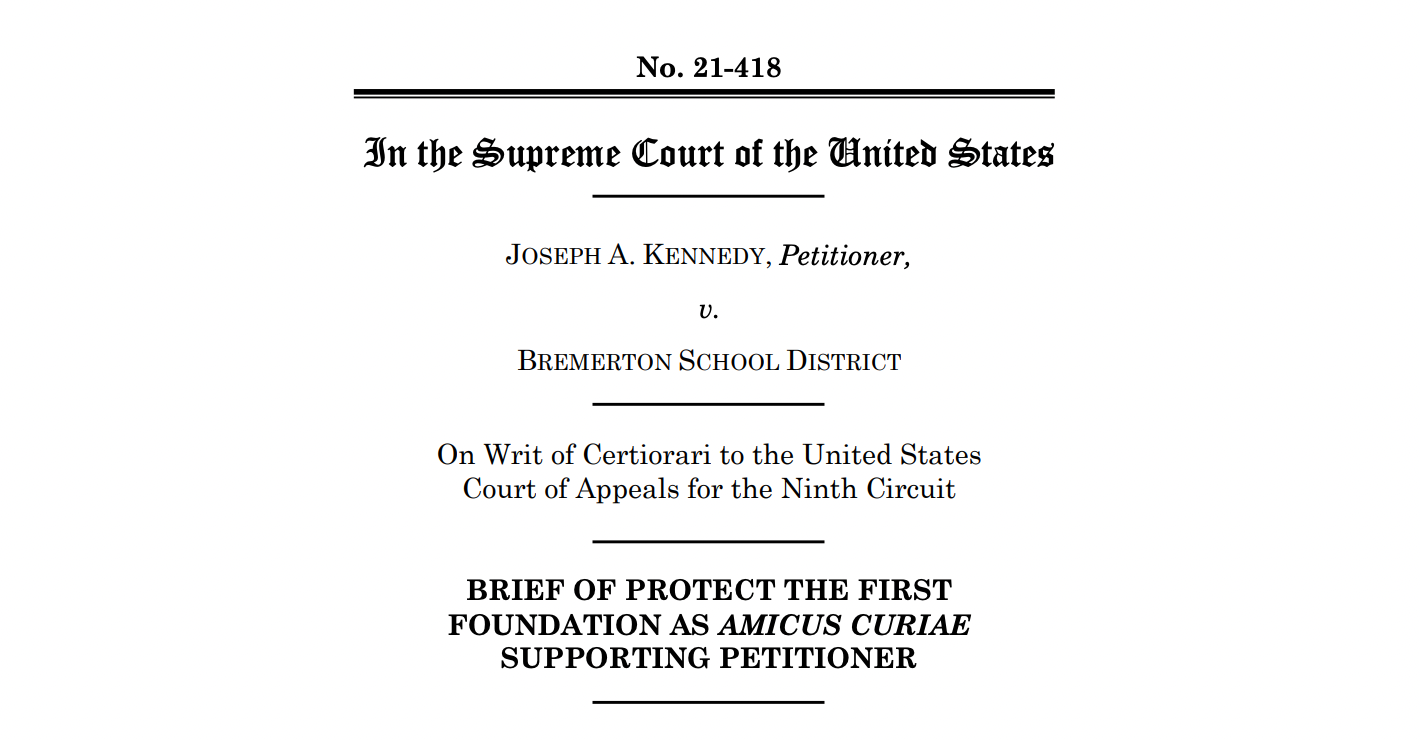|
Protect The First Foundation filed an amicus brief today in the case of the “praying coach” now before the U.S. Supreme Court.
This case involves the suspension of football coach Joseph Kennedy by Washington State’s Bremerton School District for saying thirty-second prayers on the football field after games. Coach Kennedy initially prayed alone but allowed team members who asked to join him to do so. The PT1st brief informs the Court that Coach Kennedy, in addition to being protected “twice over” by the First Amendment, is also protected by Article VI’s No Religious Test Clause. The brief explains that the rights of the coach were violated by a lower court that held that his prayers amounted to government speech – an assertion that served to “misattribute and cheapen his speech.” PT1st corrects this view, noting that it is “factually wrong – and contrary to common sense – to attribute a public employee’s personal expression of individual faith to the government, even if that expression occurred on the job.”
The brief’s main contribution is that it shows the Justices that if personal expressions of religious faith are government speech when uttered by public employees, governments may be able to impose a “back-end” religious test that tells people of faith that they are not welcome in public employment. That, PT1st explained, is a “particularly harmful” message that, “[i]f left standing, … will … limit public employment to members of favored religions that demand no visible, public displays of faith, while denying employment to those whose exercise of religion needs to be overt and visible to others.” PT1st explained that this would be a classic religious test: Just like the government cannot tell a would-be employee that she must forsake her beliefs as a condition of entering public employment, it cannot impose a requirement that she abandon religiously required expression as a continuing condition of employment after hiring her. “For all these reasons, we are optimistic the Court will rule in favor of free speech and freedom of religious expression,” said Gene Schaerr, Protect The 1st general counsel. “At one time or another, a majority of the sitting Justices have expressed sympathy for protecting religious speech, and I hope that they do so again here.” [1] Emphasis added. Comments are closed.
|
Archives
June 2024
Categories
All
|
ABOUT |
ISSUES |
TAKE ACTION |



 RSS Feed
RSS Feed